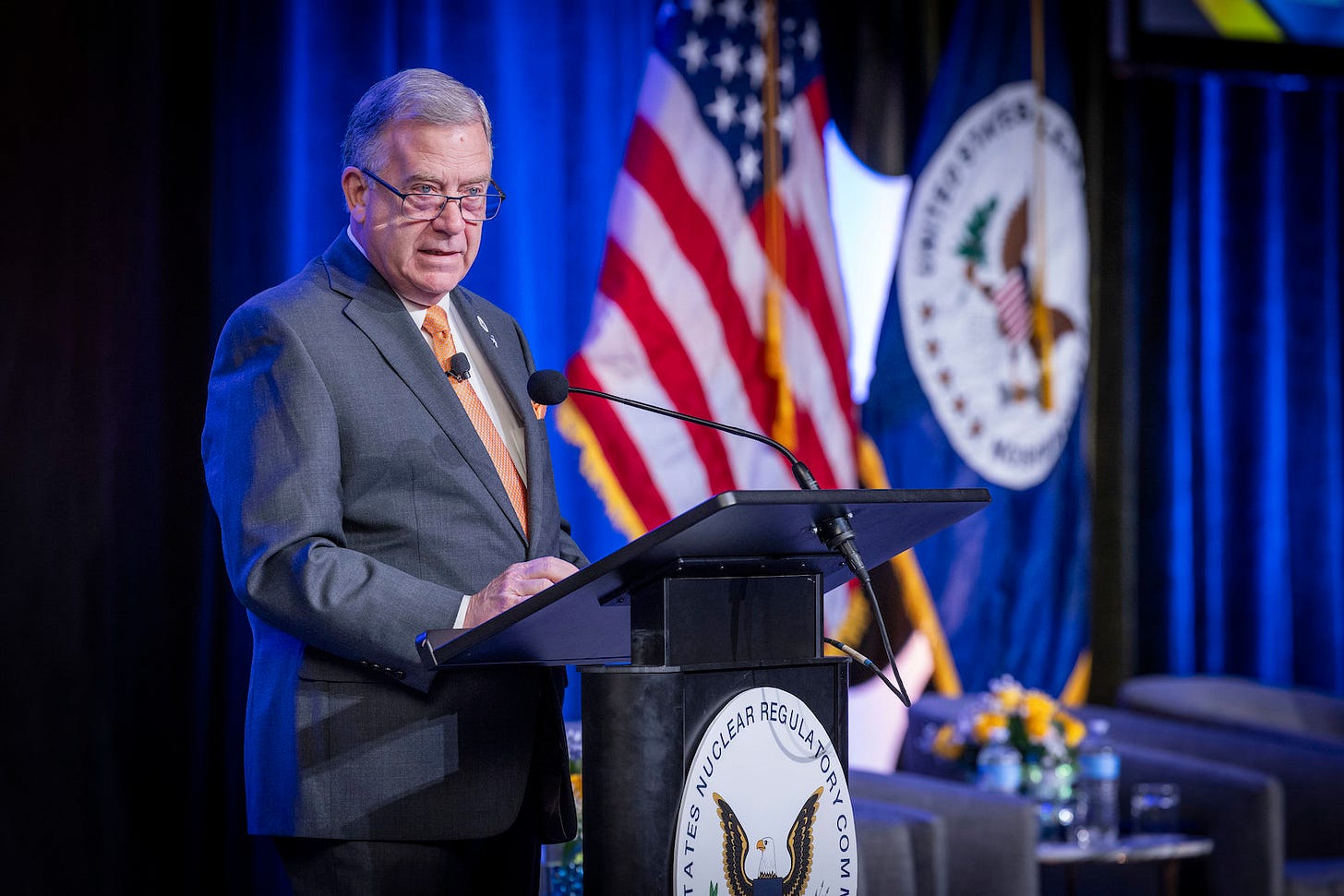By Ted Nordhaus and Erik Funkhouser
The last six months have not boded well for bipartisanship at the Nuclear Regulatory Commission. In December, during the waning days of the lame duck Congress, the Democratic Senate Majority confirmed Matthew Marzano to the commission on a straight party line vote—the first time ever that an NRC commissioner had been confirmed in this manner. As a result, it stung when NRC Chair Chris Hanson remained in his seat rather than stepping down when Trump took office. Had he resigned to ensure the incoming president a partisan majority on the commission, he would have echoed recent precedent, following in the footsteps of commissioners such as Dale Klein and Kristine Svinicki before him. Instead, he stayed on until last week, when Trump—paving his own way toward a majority—fired him.
Firing Hanson was possibly illegal and certainly norm breaking. But it is important to recognize that the norm breaking over this period has come from both sides of the aisle and threatens the bipartisanship that has mostly characterized Congressional and Executive policy-making on nuclear energy over the last decade.
And yet, just three days after Hanson was fired, some heartening news emerged: The Trump Administration nominated Commissioner David Wright—who had been elevated to the role of Chair in January—to another term on the commission. Our organizations have not always agreed on either policy matters or confirmations. In recent years we were on different sides of the battles over the confirmations of Jeff Baran and Matthew Marzano. But we can both wholeheartedly support the confirmation of David Wright. Wright is the right man to accelerate the pace of regulatory reform and commercialization of advanced nuclear technology and to restore a modicum of bipartisanship to the commission at a moment that will likely prove decisive for the future of nuclear energy.
Wright is neither a MAGA bomb thrower nor an avatar of the regulatory status quo. He is an everyday Republican, a former public utility commissioner, and a well liked figure both inside and outside NRC headquarters with a proven record of working with both Democratic and Republican commissioners to get things done. He played a critical role in building the legislative consensus to pass the ADVANCE Act and has moved quickly to implement it in his brief tenure as the Chair.
There is still much work to be done. The Commission, Wright included, has not in recent years consistently met its own self-imposed deadlines for making decisions. The pending Part 53 framework for licensing advanced reactors will require major revisions to meet Congressional direction and establish an efficient, risk-informed, and performance-based regulatory pathway for the licensing of advanced reactors. Clear leadership from the top is needed to implement the agency’s updated mission and shift its culture to enable the deployment of nuclear power as a key pillar of U.S. energy security, leadership, and innovation.
Bipartisanship has been critical as Congress and now four administrations of both parties have finally gotten serious about creating a globally competitive advanced nuclear industry in the U.S. For the good of the country and the future of nuclear energy, it is essential that this bipartisanship extends to the nomination and confirmation of NRC commissioners and to the work of the commission itself. It is unrealistic to expect every Democratic and Republican member of the Senate to agree on every commission nominee. And Democratic and Republican commissioners will not always agree on every issue. But we hope most will agree that at this critical juncture, Chair David Wright is a great choice to continue to lead at the Nuclear Regulatory Commission.
Ted Nordhaus is the Founder and Executive Director of the Breakthrough Institute. Erik Funkhouser is the Executive Director of Good Energy Collective.


